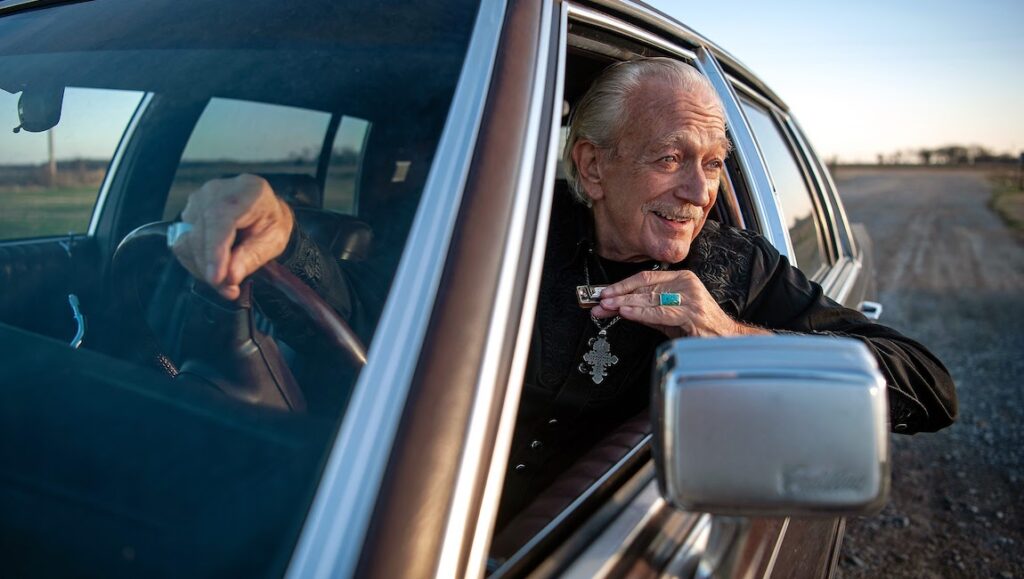Mississippi Son is Charlie Musselwhite’s crowning achievement, the kind of rarified synergy of craft and content that only the most veteran practitioners can accomplish.
Toward the end of Mississippi Son, Charlie Musselwhite imagines himself as a hitchhiker, young and aimless. The blues itself is personified as the driver who thunders down the highway — one can only presume it’s in a dark and dusty Cadillac — and offers young Charlie a ride. Nearing 80, Musselwhite has now spent decades in that car, a fleeting discursion turned into a life’s work. Mississippi Son is his travelogue, his chronicle of just where that mysterious driver has taken him; a seamless patchwork of standards and originals, the album masterfully draws on familiar forms to render Musselwhite’s biography. It’s a crowning achievement, and the kind of rarified synergy of craft and content that only the most veteran practitioners can accomplish.
It’s also a homecoming, and in more ways than one. The title reflects Musselwhite’s recent return to the state where he was born, his long life as an itinerant bluesman bringing him, at last, full circle. The songs reflect the inevitability of his path, how his lifelong fling with the blues took him far and abroad but was always destined to return him to the mouth of the river. But it’s also something of a musical homecoming: While Musselwhite has made a name for himself largely on the basis of his spirited harmonica work — his sensitive musicianship has made him the go-to harp player for everyone from Ben Harper to Tom Waits — Mississippi Son highlights his skill with the guitar, an instrument he mastered as a child but has rarely showcased on his records. There’s a smeared-lipstick romance to his playing, which never sounds polished but is consistently tantalizing in its rhythmic precision. There’s even a solo acoustic guitar piece here, offered as a testament to his late friend and mentor Big Joe Williams; Musselwhite plays it on one of Big Joe’s own guitars, an apt metaphor for the way this record knowingly engages with personal history.
It’s not just personal history that Musselwhite is concerned with. One of the most ingenious things about Mississippi Son is how it overlays autobiography on top of a compact history of the blues, exhibiting Musselwhite’s comprehensive knowledge of the form and weaving old chestnuts into his own story. Played in a tight three-piece configuration, the cover songs attest to Musselwhite’s gifts as a blues stylist: His take on John Lee Hooker’s “Crawling King Snake” is tightly-coiled, casual in its menace; Charley Patton’s “Pea Vine Blues” is offered up as an irresistible, locomotive groove. The Stanley Brothers’ country-folk classic “Rank Strangers” is converted into a dusty blues, and best of all is a raucous reading of Yank Rachell’s “Hobo Blues,” which sounds positively nasty with its popping drums and stinging guitar. No matter what mode he’s working in, Musselwhite sings with a casual authority and deep control — his voice has more in common with the booming solemnity of Johnny Cash than with the frayed edges of Howlin’ Wolf.
The cover songs provide context for Musselwhite’s originals, which sketch out his own vagabond life — his prodigal wanderings and winding road home — in a rough-hewn, rural vernacular. (Personal though these songs may be, you may need to consult the liner notes to distinguish some of the originals from decades-old staples.) Opener “Blues Up the River” is loose and limber, a testament to Musselwhite’s hypnotic power; it’s also a marvel of storytelling brevity and precision. “Drifting from Town to Town” tells you everything you need to know in the title alone, while the uptown swing of “Blues Gave Me a Ride” bears witness to a life of gratitude: “Now if blues stops for you / Won’t you jump on board? / You can forget all your troubles and / Roll on down the road.” For him, blues is both escape and calling; and on Mississippi Son, it’s also an open invitation.
Published as part of Album Roundup — June 2022 | Part 2.


Comments are closed.